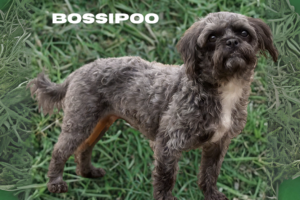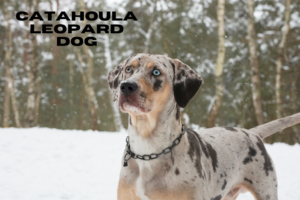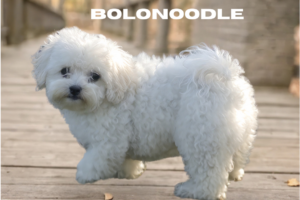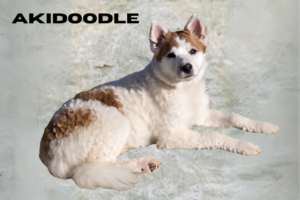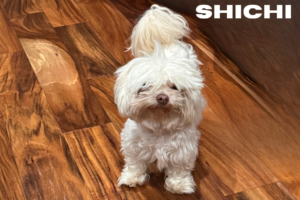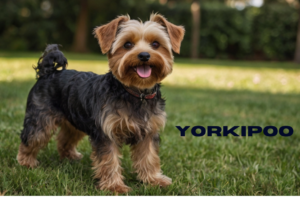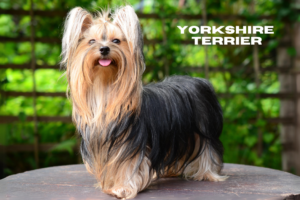Bossipoo > A to Z Breed Guide
The Bossipoo, also known as the Boston Poo, is a charming hybrid breed resulting from the cross between the Boston Terrier and the Poodle. This small, energetic dog is known for its intelligence, playful nature, and low-shedding coat, making it a great choice for active families and apartment living. Breed Characteristics Origin and History The Bossipoo is a relatively new designer breed that combines the spunky personality of the Boston Terrier with the intelligence and hypoallergenic coat of the Poodle. Although their exact origins are not well-documented, the Bossipoo has gained popularity for its playful nature, intelligence, and adaptability, particularly in urban environments. Appearance and Physical Characteristics Bossipoo dogs typically have a small to medium build, weighing between 10 to 25 pounds and standing around 10 to 15 inches tall at the shoulder. Their coat can vary from short and sleek to curly or wavy, depending on which parent they take after more. Coat colors are often a mix of black, white, and brindle, typical of the Boston Terrier, combined with solid or parti-color patterns from the Poodle. Temperament and Personality Bossipoo dogs are energetic, playful, and affectionate, making them excellent companions for families and individuals alike. They thrive on human interaction and enjoy being involved in family activities. Bossipoos are known for their intelligence and can be both entertaining and affectionate. They are great with children and other pets, particularly when socialized early, and enjoy being the center of attention. Intelligence and Trainability Thanks to their Poodle heritage, Bossipoos are highly intelligent and generally easy to train. They respond well to positive reinforcement techniques and enjoy learning new tricks and commands. Early training and socialization are important to ensure they develop good behavior and social skills. Bossipoos are known for their adaptability and can excel in various dog sports and activities, including obedience and agility training. Compatibility with Children and Other Pets Bossipoo dogs are excellent with children and other pets, particularly when socialized from a young age. Their playful and affectionate nature makes them ideal companions for families, and they generally get along well with other dogs and household pets. Bossipoos are known for their friendly and sociable nature, which makes them a great addition to multi-pet households. Health and Nutrition Bossipoo dogs are generally healthy, but they can be prone to certain health issues common to their parent breeds, such as respiratory issues from the Boston Terrier and dental problems. Regular veterinary check-ups and a high-quality, balanced diet are essential to keeping them in good health. Owners should also pay attention to their dental care and provide regular teeth cleaning to prevent issues. Exercise and Activity Level Bossipoo dogs have high energy levels and require regular exercise to stay healthy and happy. They enjoy daily walks, playtime, and mental stimulation, which can often be met through indoor play or activities in a yard. Bossipoos are adaptable to both apartments and houses with yards, as long as they receive adequate exercise and interaction. Grooming Needs The grooming needs of a Bossipoo depend on the type of coat they inherit. Regular brushing is necessary to prevent matting and tangles, especially if they have a curly or wavy coat. Bathing should be done as needed to keep the coat clean and healthy. Routine grooming tasks such as dental care, ear cleaning, and nail trimming are also important to maintain their overall health and appearance. Training and Socialization Early training and socialization are crucial for Bossipoo dogs. They are intelligent and eager to learn, making them responsive to positive reinforcement training techniques. Socializing them with different people, pets, and environments helps them develop confidence and good behavior. With proper guidance, Bossipoos can become well-mannered and friendly companions. Famous Bossipoos Bossipoo dogs may not be as widely recognized as some other designer breeds, but they are loved by their owners for their lively personalities and adaptable nature. Their playful and affectionate demeanor makes them a favorite in urban settings, where they can thrive as both companions and playmates. Conclusion The Bossipoo is an intelligent, playful, and affectionate breed that makes an excellent companion for families and individuals alike. With proper training, socialization, and care, a Bossipoo can be a loyal and loving member of the family. Check Out These Bossipoo T-Shirts, Hoodies, Pillows, Phone Cases, & More! >CLICK HERE<
Bossipoo > A to Z Breed Guide Read More »

